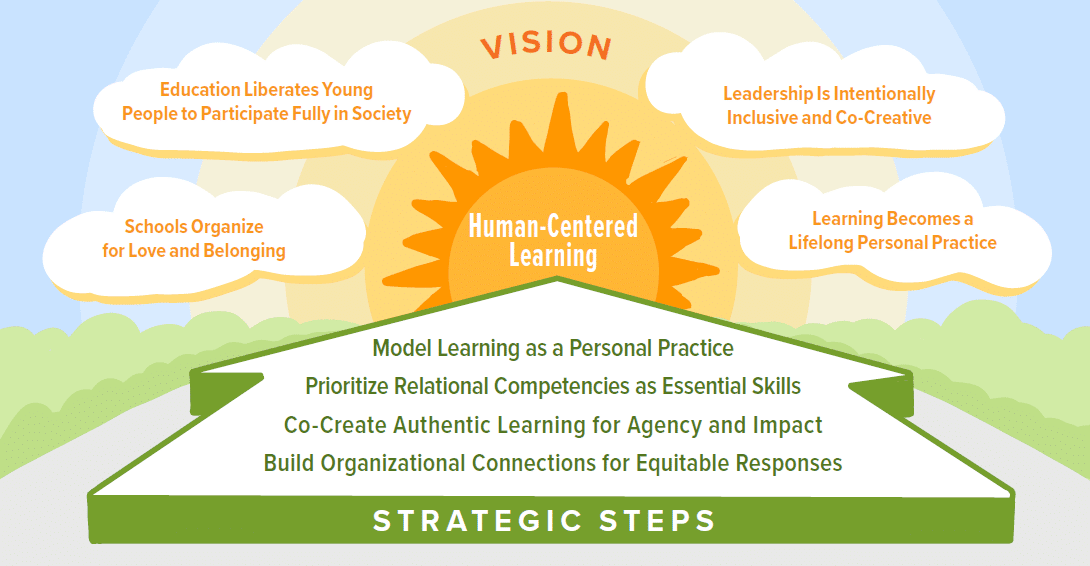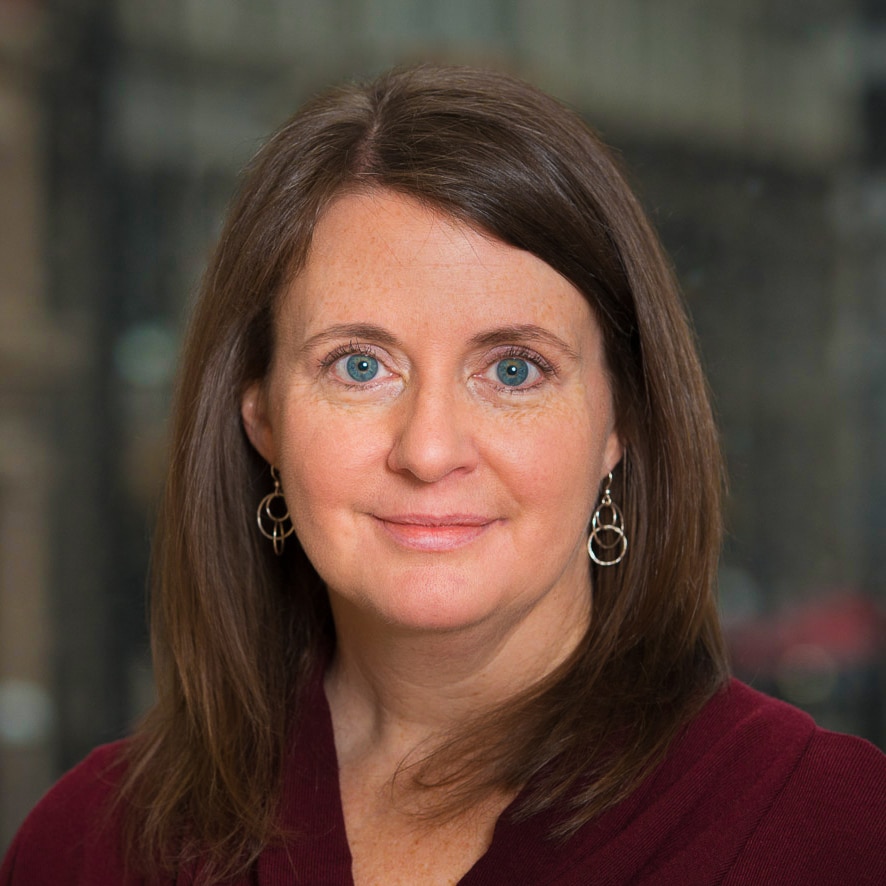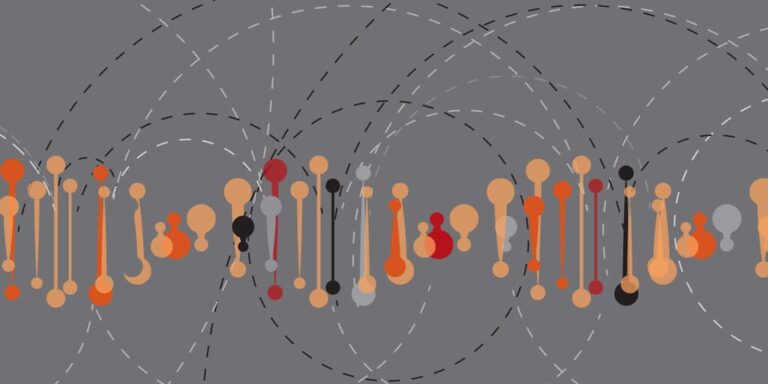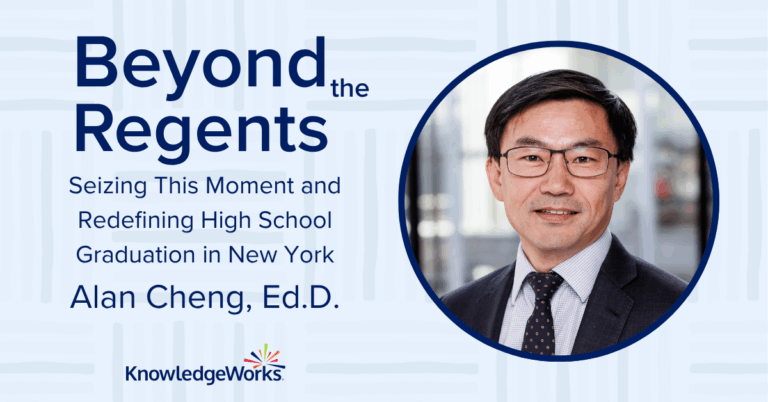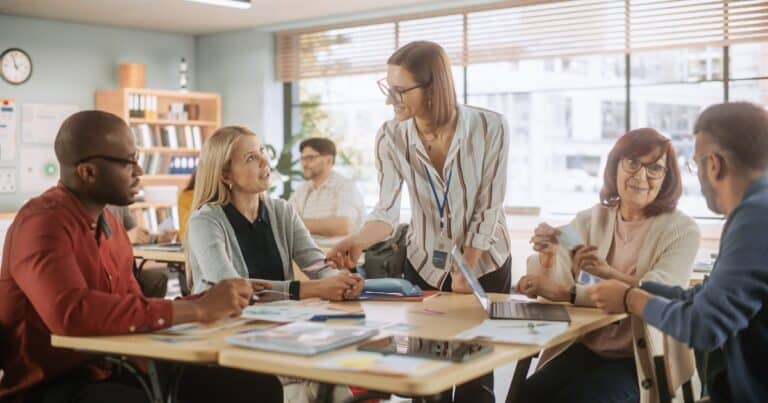I’ve been fortunate to have learned a lot during my career so far. Most of the jobs I’ve held have involved doing things that I didn’t know existed before I happened upon them. As student in literature, I had no idea that I had the organizational skills to learn to manage projects effectively – or that project management was a thing – until I found myself starting a communications team at a small consulting firm that needed someone to look after a major project. Over the years, I’ve learned more and more about project management in different contexts.
Similarly, I had no idea that strategic foresight existed until, as a new employee, I attended an all-staff presentation on KnowledgeWorks’ first forecast on the future of learning. After I got over feeling freaked out by some of the unsettling possibilities that it presented, I discovered that I had a knack for thinking about the future and helping people consider how to shape it. As I got more involved in, and eventually came to lead, KnowledgeWorks’ exploration of the future of learning, I was able to draw upon previous courses in strategy and in creativity, innovation and change as starting points for weaving together my own strategic foresight practice. I learned a lot on the job, at first working alongside more experienced (and still with more formally educated) practitioners. I drew upon professional development in systems thinking and the art of hosting that I had encountered in other contexts and sought foresight-specific training when I wanted to deepen my practice. I continue to learn about how to make it more effective.
People are working longer. The shelf-life of many skills is shortening. Employment structures and practices are changing, as is the very nature of human work. In face of these changes, we are all going to need to reskill and upskill repeatedly throughout our lifetimes – indeed, many of us have already started doing that. We are also going to need to develop new skills and knowledge simply to navigate what it means to grow as humans and participate in society in a time of rapid change and widespread uncertainty.
Among other trends, postsecondary education has already been seeing growing demand for lifelong learning. Some describe this trend as a 60-year curriculum – the idea that people now need to prepare for 60-year-long careers that will bring us into contact with postsecondary institutions repeatedly during our adult lives. In addition, adults are known to grow and develop via lifewide learning – learning that extends across many areas of our lives, deliberately and not. Spanning family and home, work, travel, hobbies, various forms of virtual engagement and other domains, lifewide learning can be formal or informal.
Both dimensions of learning reflect the need to develop practices for:
- Identifying what knowledge or skills we need to address particular problems or pursue goals
- Engaging with people and experiences that provide learning opportunities in those areas
- Seeking out and growing from feedback and
- Persisting through setbacks and resolving errors or failures.
In exploring the potential for educational structures, policies, practices and experiences to revolve around the flourishing and well-being of all the people involved in education, KnowledgeWorks’ Envisioning Human-Centered Learning Systems identified learning as a lifelong personal practice as one of four essential vision elements. Teaching learning as a personal practice promises to enable children and youth to develop the individual agency and techniques to break through learning plateaus and achieve goals, setting the foundation for lifelong and lifewide learning.
In developing an effective learning practice, students can take ownership of their learning journeys, exercising agency and taking initiative in building their own learning support systems. They can come to understand the conditions, supports and tools that are necessary for them to drive their own personal growth and self-discovery. They can learn to adapt and grow in many circumstances.
Of course, it can’t all fall on students. The design of learning experiences and assessments is critical in enabling this element of human-centered learning. Supportive, developmental conversations with teachers and the others who support learners can help them discover their motivations for learning, identify their most effective practices and demonstrate their learning effectively. Assessments that paint a rich picture of learners’ accomplishments and learning practices can encourage reflection and growth.
As with other dimensions of human-centered learning, signals of change illustrate ways in which future possibilities are beginning to unfold today. The two examples below demonstrate how students in some settings are gaining more autonomy in directing, planning and assessing their own learning.
- An independent high school in Cleveland, Ohio, Mastery School of Hawken, focuses on cultivating students’ lifelong learning practices. The school combines opportunities for real-world problem-solving and personalized mentoring relationships with an assessment model that provides an interactive, visual picture of each learner’s strengths and experiences using a Mastery Transcript.
- The EL Education network supports students in taking ownership of their work. Students engage in real-world, project-based learning expeditions; complete self-directed assessments; and deepen their relationships with the natural world and communities through service.
Considering ways in which more learning communities might help students develop lifelong learning practices can help us identify avenues for bringing human-centered learning systems to life and supporting every learner in developing critical lifelong habits. Those systems can include a variety of learning environments, not just schools. We don’t wait until we’re adults for learning to be lifewide.
What would happen if we reoriented teaching and learning systems, expectations and experiences to put a comprehensive view of human development at the center? Explore this concept in Envisioning Human-Centered Learning Systems.
